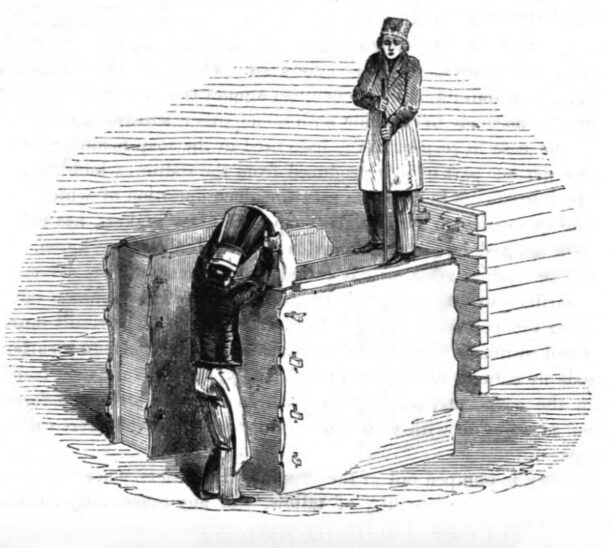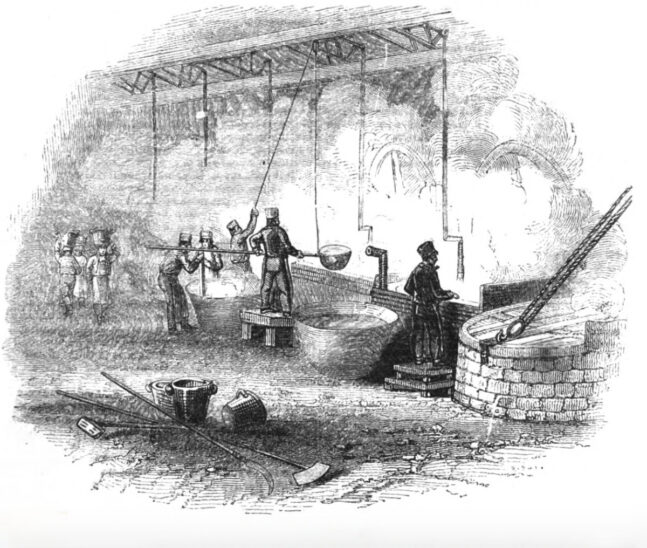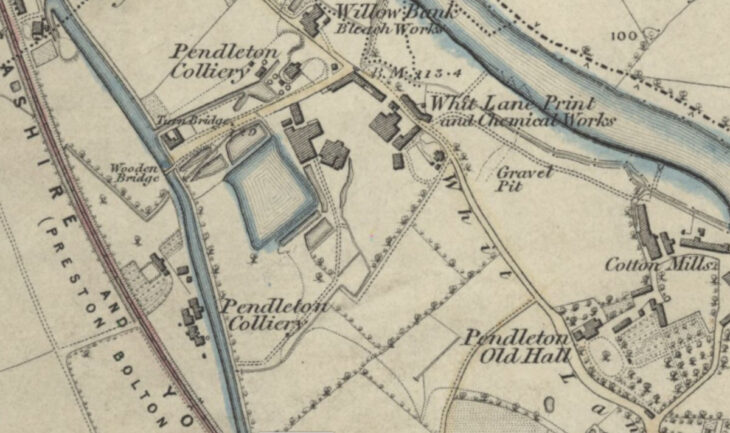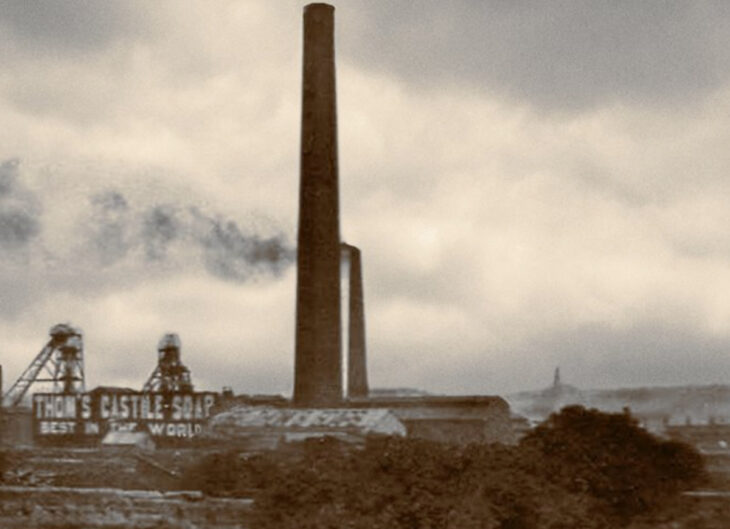David Thom
David Thom (1823-71), soap boiler and tallow chandler of Whit Lane, was born in Lanarkshire, Scotland in 1823. The son of Robert Thom a distiller, David Thom trained as a chemist. By 1848 David Thom had moved south and established a soap and tallow works on Whit Lane, Pendleton, initially with his brother John who later became a successful calico printer in Chorley. The fortunes of David Thom are closely linked to those of the Phillips family who lived nearby at Pendleton Old Hall during the 1840s and 50s. Thom’s fellow business partner, George Aldcroft Phillips (1826-96), was the son of Aldcroft Phillips, a successful Manchester solicitor, and the brother of Emma Jane Phillips who married Thom at Eccles Parish church in 1852.


The Illustrations are taken from George Dodd’s Days at the Factories 1843

In 1851 David Thom was lodging on Brindle Heath Road but following their marriage Emma and David Thom lived on Monton Road, Eccles where, in 1861, Thom described himself as a soap boiler with a workforce of 25. By 1871 the Thoms were living at South Bank, 25 Eccles Old Road with their eleven children and four servants. Thom’s soap business prospered benefitting from Gladstone’s 1853 repeal of excise duty on soap that had been imposed centuries earlier. Increased mechanisation, public health campaigns, advances in plumbing and sanitary reform also benefitted the company as did Alfred Nobel’s 1867 discovery that glycerine, a by-product of soap making, was a necessary component in nitroglycerine used in the manufacture of dynamite. David Thom and George Aldcroft Phillips were also responsible for several patents relating to soap production and reacted with notices in the press when they were infringed.



In 1868 Thom had been elected for the second time as a councillor for the St Thomas ward in Pendleton but in 1871 disaster struck when he died at sea aboard the Australian en route from Gonaives, West Indies to Liverpool. Thom’s cause of death is recorded in the ship’s records as delirium tremens. It is not known if he was buried at sea but It is possible that Thom was returning from a business trip, sourcing raw materials for his soap business. Thom’s estate was valued at £16,000 and his will instructed his trustees to sell his personal assets in order to provide an annuity for Emma and their children. Emma later moved to the London area where she died in 1904. Her brother George Aldcroft Phillips died in 1896 worth £116,310. He is interred at St Mark’s, Worsley.


The early twentieth century marked a period of expansion at Thoms which can be clearly seen ‘on the ground’ in the ordnance survey maps of the Whit Lane works (above). In 1898 Thoms amalgamated with Domeier, a chemical company with mutual interests. David Thom, Domeier Ltd was wound up in 1906 and the company was restructured reverting to the original David Thom and Company name. Notices in the national press in 1908 give an indication of the range of processes and products including a caustic soda plant, industrial soaps, hard, soft and dry soaps for household and manufacturing use, carbolic, soap flakes, toilet soaps and glycerine. The company was acquired by Oxley Industries Ltd in 1965. It is not known when soap-making ceased at ‘Soapy Thoms’.

